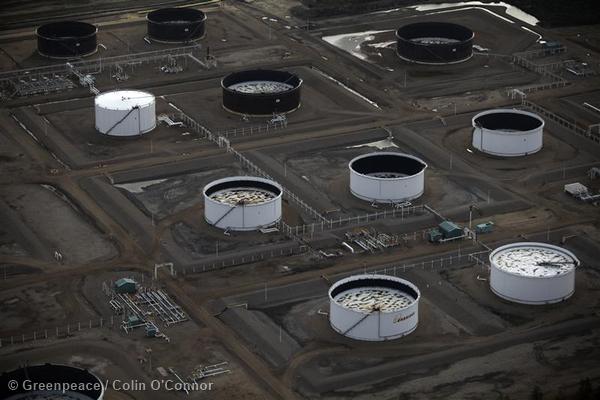
Growing evidence of health threats from tar sands exploitation
As the delay on the proposal to implement the Fuel Quality Directive reaches 1,186 days, there is growing evidence that tar sands mining and drilling operations, pipelines, and refineries are exposing local communities to serious health risks and problems.
Interested in this kind of news?
Receive them directly in your inbox. Delivered once a week.
In the US, a new report by the Natural Resources Defense Council (NRDC) collates scientific research from several sources indicating that tar sands activity is causing increasing levels of air and water pollution in North America that are then linked to health problems including cancer.
The NRDC cites a 2013 study that noted an elevated level of hazardous air pollutants coming from tar sands operations north of Edmonton, in Alberta, Canada, and the rise locally in rates of leukaemia and other cancers. A 2012 study recorded Alberta’s heightened levels of toxic polycyclic aromatic hydrocarbons, which can be traced to the expansion of tar sands production. Some waters in the province exceeded Canadian standards for chemicals linked to cancer, birth defects, and organ damage.
The NRDC also says scientists have confirmed increased incidences of some cancer types in Fort Chipewyan, Alberta, where many First Nations aboriginal people reside. The First Nations have called for an independent study of these cancers.
The findings come as the European Commission stalls on fully implementing the 2009 Fuel Quality Directive, which commits to a 6% reduction of the carbon intensity of EU transport fuels by 2020.
But as Canada ramps up tar sands mining and drilling, projections indicate the amount of tar sands oil imported by the EU from Canada by 2020 will be 175 times greater than in 2012.
As tar sands oil is on average 23% more carbon-intensive than conventional crude oil, this would amount to adding six million cars to Europe’s roads in emissions terms. This flood of tar sands would increase the carbon intensity of European fuels by 1.5%.
Detailed rules on reporting and labelling the carbon content of fuels for oil companies have yet to be agreed. A proposal was released in 2011, but a massive lobbying operation by Canada and the oil industry has led to paralysis in the EU decision-making process.
